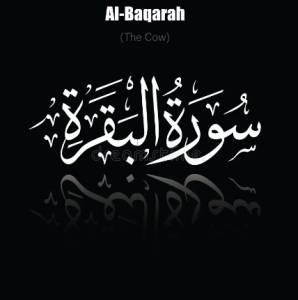
The Quran, often spelled as Qur’an or Koran, is the holy book of Islam, considered by Muslims to be the literal word of God (Allah) as revealed to the Prophet Muhammad (peace be upon him) through the Angel Gabriel over a period of approximately 23 years. It is written in Arabic and is divided into 114 chapters called Surahs, which vary in length and cover a wide range of topics including theology, morality, guidance for personal conduct, laws, and narratives about previous prophets and civilizations.
- Guidance: Muslims believe that the Quran is the ultimate source of guidance from Allah (God). It provides teachings on how to live a righteous life, make moral decisions, and achieve spiritual growth.
- Divine Revelation: The Quran is considered the literal word of Allah, as revealed to the Prophet Muhammad (peace be upon him) through the Angel Gabriel over a period of approximately 23 years. Therefore, its words carry immense authority and importance.
- Spiritual Connection: Reading the Quran fosters a direct connection between the believer and Allah. It is seen as a means of spiritual purification, enlightenment, and closeness to the Creator.
- Understanding Islam: The Quran contains principles of faith, law, morality, and spirituality that form the foundation of Islamic beliefs and practices. By reading and studying the Quran, Muslims deepen their understanding of their religion.
- Reflection and Contemplation: The Quran encourages believers to reflect on its verses, ponder their meanings, and apply them to their lives. This process of contemplation (Tadabbur) leads to personal growth, self-awareness, and a deeper understanding of one’s purpose in life.
- Source of Blessings: Muslims believe that reciting and listening to the Quran brings blessings and rewards from Allah. It is considered a virtuous act that earns merit in this life and the hereafter.
- Preservation of Tradition: The Quran has been meticulously preserved in its original Arabic text since the time of its revelation. By reading and memorizing the Quran, Muslims contribute to the preservation of their religious heritage and pass it on to future generations.
- Community Cohesion: Recitation of the Quran is an integral part of communal worship in Islam, particularly during congregational prayers and special occasions such as Ramadan. This shared practice fosters a sense of unity and belonging among Muslims worldwide.
- Healing and Comfort: Many Muslims find solace, peace, and spiritual healing through the recitation of the Quran, especially during times of difficulty, grief, or hardship. Its soothing rhythms and profound verses offer comfort and strength to the believer.
- Fulfillment of Religious Duty: For Muslims, reading and engaging with the Quran is not just a recommended practice but an essential religious obligation. It is considered one of the Five Pillars of Islam, emphasizing its centrality in the life of a practicing Muslim.
Overall, the importance of reading the Quran extends beyond mere religious obligation; it encompasses spiritual nourishment, moral guidance, personal growth, and communal cohesion for millions of Muslims worldwide.
Reading the Quran and Hadiths holds paramount importance in Islam, serving as foundational sources of guidance, wisdom, and spiritual nourishment for Muslims. Here’s a closer look at why they are crucial and the benefits associated with each:
Importance of Reading the Quran:
- Divine Revelation: Muslims believe the Quran to be the literal word of Allah (God), revealed to Prophet Muhammad (peace be upon him) through the Angel Gabriel. As such, it holds supreme authority and significance in guiding believers in matters of faith, morality, and conduct.
- Guidance for Humanity: The Quran serves as a comprehensive guide for all aspects of life, providing timeless principles and teachings applicable to individuals, societies, and nations across time and space.
- Spiritual Connection: Reading the Quran deepens one’s spiritual connection with Allah. It serves as a means of communication between the believer and the Creator, fostering spiritual growth, enlightenment, and closeness to God.
- Source of Blessings: Muslims believe that reciting and pondering over the verses of the Quran brings immense blessings and rewards from Allah. It is considered a virtuous act that earns merit in this life and the hereafter.
- Preservation of Tradition: The Quran has been meticulously preserved in its original Arabic text since the time of its revelation. By reading and memorizing the Quran, Muslims contribute to the preservation of their religious heritage and pass it on to future generations.
- Personal Development: Reading the Quran encourages self-reflection, contemplation, and moral growth. Its teachings inspire individuals to strive for righteousness, justice, compassion, and humility in their interactions with others and their conduct in society.
Benefits of Reading the Quran:
- Spiritual Fulfillment: The Quran provides spiritual nourishment, peace, and contentment to the hearts of believers. Its verses offer solace, guidance, and hope during times of difficulty, grief, or uncertainty.
- Intellectual Enrichment: Engaging with the Quran stimulates intellectual curiosity and critical thinking. Its profound teachings provoke contemplation, leading to deeper insights into the nature of existence, purpose of life, and the human condition.
- Moral Upliftment: The Quran instills moral values such as honesty, integrity, kindness, patience, and forgiveness. By internalizing these virtues, individuals develop character traits that contribute to personal well-being and social harmony.
- Cultural Identity: The Quran plays a central role in shaping the cultural identity of Muslims worldwide. Its teachings influence various aspects of daily life, including language, art, architecture, literature, and social customs.
- Community Cohesion: Reciting and studying the Quran fosters a sense of unity and belonging among Muslims. It promotes communal worship, mutual support, and cooperation in upholding shared religious values and principles.
Importance of Hadiths:
- Prophetic Tradition: Hadiths are narrations of the sayings, actions, and approvals of Prophet Muhammad (peace be upon him). They provide practical guidance on how to implement the teachings of the Quran in everyday life.
- Clarification and Elaboration: Hadiths elucidate the teachings of the Quran, providing context, interpretation, and practical applications of its principles. They serve as a supplementary source of religious knowledge and jurisprudence.
- Legal and Ethical Guidance: Hadiths offer detailed guidance on matters of Islamic law (Sharia) and ethical conduct. They address a wide range of topics, including worship, transactions, family matters, etiquette, and social interactions.
- Preservation of Prophetic Sunnah: Hadiths preserve the Sunnah (traditions) of Prophet Muhammad, which exemplify the ideal way of life for Muslims. By studying and following his example, believers seek to emulate his piety, compassion, and righteousness.
Benefits of Studying Hadiths:
- Authenticity Verification: Hadith scholarship involves the critical examination of chains of transmission (isnad) and the content (matn) of narrations to authenticate their reliability. This rigorous process ensures the preservation of authentic Prophetic teachings.
- Understanding Context: Hadiths provide historical context and background information that shed light on the circumstances surrounding the revelation of Quranic verses and the Prophet’s actions. This deepens understanding and facilitates application in contemporary contexts.
- Legal and Ethical Guidance: Hadiths offer practical guidance on legal rulings (fiqh) and ethical conduct (akhlaq), providing Muslims with a comprehensive framework for navigating various aspects of life in accordance with Islamic principles.
- Spiritual Connection: Studying the traditions of Prophet Muhammad fosters a deeper spiritual connection with him and strengthens love and reverence for the final Messenger of Allah. It cultivates a sense of belonging to the broader Muslim community and a commitment to following the Prophetic example.
In summary, reading the Quran and studying Hadiths are indispensable practices for Muslims seeking spiritual growth, guidance, and moral refinement. They provide a comprehensive framework for living a righteous and fulfilling life in accordance with Islamic principles and values.
Click here to listen
Absolutely, reading the Quran is often a profound source of inner peace for many Muslims. There are several reasons why this is the case:
- Divine Guidance: Muslims believe that the Quran is the literal word of Allah (God), revealed to Prophet Muhammad (peace be upon him) through the Angel Gabriel. As such, its verses are seen as a direct communication from the Creator to humanity, offering guidance, wisdom, and solace.
- Spiritual Connection: Reciting and pondering over the verses of the Quran fosters a deep spiritual connection with Allah. Many Muslims find peace and tranquility in the act of recitation, feeling a sense of closeness to the Divine as they immerse themselves in the sacred text.
- Comfort in Trials: The Quran contains verses that offer reassurance, comfort, and hope to believers facing adversity or hardship. Whether dealing with personal challenges, grief, or uncertainty, many Muslims find solace in the words of the Quran, which remind them of Allah’s mercy, compassion, and sovereignty over all affairs.
- Clarity and Guidance: The Quran provides clear guidance on how to navigate life’s challenges and dilemmas. Its teachings offer practical wisdom for making moral decisions, resolving conflicts, and cultivating inner peace through acts of worship, remembrance, and gratitude.
- Reflection and Contemplation: Engaging with the Quran encourages self-reflection, contemplation, and introspection. Many Muslims find inner peace through the process of pondering over the profound meanings and messages conveyed in its verses, leading to personal growth, insight, and spiritual enlightenment.
- Connection to Tradition: For Muslims, the Quran is not merely a religious text but also a link to their rich cultural and spiritual heritage. By reading and reciting the Quran, believers feel connected to generations of faithful followers who have found solace, guidance, and inspiration in its timeless verses.
- Emotional Healing: The Quran addresses a wide range of human emotions and experiences, offering guidance on how to navigate feelings of anger, sadness, fear, and grief. Many Muslims find that reading and reflecting on relevant verses helps them process their emotions and find inner peace and emotional healing.
- Sense of Purpose: The Quran provides Muslims with a sense of purpose and direction in life. Its teachings emphasize the importance of striving for righteousness, justice, compassion, and humility, fostering a sense of inner peace and fulfillment through alignment with divine values and objectives.
Overall, reading Quran is indeed a powerful source of inner peace for countless Muslims around the world. Its timeless teachings, profound wisdom, and spiritual insights offer solace, comfort, and guidance to believers seeking tranquility and serenity in their hearts and minds.
The relationship between Quran and science is a complex and multifaceted topic that has been studied and debated by scholars, scientists, and theologians for centuries. Here are some key points to consider:
- Scientific References in the Quran: Some Muslims believe that certain verses in the Quran contain descriptions or references to scientific phenomena that were not known at the time of revelation. These include references to embryology, cosmology, geology, and other natural phenomena. Some proponents argue that these verses demonstrate the Quran’s divine origin and its compatibility with modern scientific knowledge.
- Interpretation and Context: Interpretations of Quranic verses in light of modern scientific discoveries vary widely among scholars and Muslims. While some see parallels between certain Quranic passages and scientific findings, others argue that such interpretations are subjective and may not reflect the original intent or context of the verses.
- Metaphorical and Literal Interpretations: The Quran contains verses that are often interpreted both metaphorically and literally. While some passages may be understood metaphorically or allegorically, others are taken more literally by believers. The interpretation of scientific references in the Quran often depends on whether they are seen as metaphorical or literal descriptions of natural phenomena.
- Scientific Inquiry and Islam: Islam has a rich tradition of scientific inquiry and scholarship, dating back to the Golden Age of Islamic civilization. Many Muslim scientists and scholars made significant contributions to various fields of science, including astronomy, mathematics, medicine, and philosophy. The Quranic emphasis on seeking knowledge, observation of nature, and reflection is often cited as supportive of scientific inquiry.
- Dialogue and Debate: The relationship between the Quran and science has been the subject of ongoing dialogue and debate within the Muslim community and between Muslims and non-Muslims. While some see harmony between the two, others caution against conflating religious scripture with empirical scientific knowledge, emphasizing the distinct methodologies and domains of science and religion.
- Limits of Interpretation: It’s important to recognize the limits of interpretation when considering scientific references in the Quran. While some parallels between Quranic verses and scientific discoveries may be intriguing, they should not be viewed as definitive proof of the Quran’s scientific accuracy. Interpretations of religious texts are inherently subjective and can be influenced by cultural, historical, and ideological factors.
In conclusion, the relationship between the Quran and science is a complex and nuanced topic that continues to be explored and debated. While some Muslims see compatibility between certain Quranic verses and scientific discoveries, others approach the issue with caution, recognizing the importance of context, interpretation, and the distinct methodologies of science and religion. Ultimately, interpretations of Quranic verses in relation to science vary widely among individuals and scholars within the Muslim community.
Click here for more







